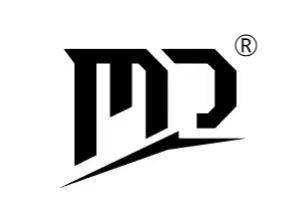Fiber Reinforced Polymer (FRP) composites have been widely used in various industries due to their exceptional properties that include high strength-to-weight ratio, excellent corrosion resistance, and durability. The petrochemical industry is one of the most important and demanding sectors where FRP composites have become increasingly popular due to their ability to withstand harsh operating conditions, aggressive chemicals, and high temperatures. This paper explores the application of FRP composites in the petrochemical industry, including their benefits, limitations, and future prospects.
Background
The petrochemical industry is responsible for the production of various chemicals, fuels, and plastics that are used in modern society. The industry operates in extremely harsh environments where corrosion, abrasion, and erosion are common problems that can cause significant damage to equipment and facilities. In addition, the industry faces stringent regulations that require the use of materials that are safe, reliable, and environmentally friendly. FRP composites have emerged as promising alternatives to traditional materials such as steel, concrete, and aluminum due to their high performance, low maintenance, and relatively low cost.
Benefits of FRP Composites in Petrochemical Industry
Corrosion Resistance
One of the most significant benefits of FRP composites in the petrochemical industry is their excellent resistance to corrosion. Unlike conventional materials such as steel, FRP composites do not rust, corrode or deteriorate when exposed to harsh chemicals, acidic or alkaline environments, or high humidity. This makes FRP composites ideal for use in storage tanks, pipes, and vessels that handle corrosive substances such as acids, alkalis, and solvents. FRP composites can also be designed to withstand thermal cycling, which is a common cause of stress corrosion cracking in metallic materials.
Mechanical Performance
FRP composites have exceptional mechanical properties that include high strength-to-weight ratio, stiffness, and fatigue resistance. These properties make FRP composites ideal for use in structural applications such as bridges, towers, and buildings that require high strength and durability. In the petrochemical industry, FRP composites are used to fabricate process equipment, such as heat exchangers, scrubbers, and separators, that are exposed to high pressures, temperatures, and mechanical stresses. FRP composites can also be designed to meet specific design requirements by adjusting the fiber orientation, resin system, and manufacturing process.
Environmental Friendliness
The use of FRP composites in the petrochemical industry offers significant environmental benefits over traditional materials such as steel and concrete. FRP composites are lightweight, which means that they require less energy to transport and install. They are also recyclable, which reduces the amount of waste that is generated during fabrication and installation. In addition, FRP composites do not emit harmful pollutants during their service life, which improves the overall air quality in the surrounding environment.
Limitations of FRP Composites in Petrochemical Industry
Despite the many advantages of FRP composites, there are also limitations that need to be considered when choosing these materials for petrochemical applications. Some of the major limitations include:
Cost
FRP composites can be more expensive than traditional materials, particularly in the initial stages of design and fabrication. This is because the manufacturing process of FRP composites requires specialized equipment and skilled labor. However, the long-term benefits of using FRP composites, such as reduced maintenance, repair costs, and downtime, can outweigh the initial costs, especially in applications where corrosion and mechanical failure are significant concerns.
Fire Resistance
FRP composites are not inherently fire-resistant and can be vulnerable to fire in certain circumstances. When exposed to high temperatures, FRP composites can soften, deform or even ignite, which can be a significant safety hazard in the petrochemical industry. Therefore, it is important to select an appropriate resin system and fiber type that will provide the necessary fire resistance for the specific application.
UV Degradation
FRP composites can be susceptible to degradation when exposed to ultraviolet (UV) radiation from sunlight. UV radiation can cause the resin to degrade and the fibers to lose their strength, which can compromise the structural integrity of the component. Therefore, it is important to design and specify FRP composites that are protected against UV radiation through the use of appropriate coatings or additives.
Future Prospects of FRP Composites in the Petrochemical Industry
The application of FRP composites in the petrochemical industry is expected to grow in the coming years, driven by increasing demand for materials that can withstand harsh operating conditions, aging infrastructure, and environmental concerns. Advances in FRP composite technology, such as the development of hybrid materials, nano-reinforcements, and 3D printing, are opening up new opportunities for designers and engineers to create innovative and high-performance solutions for the petrochemical industry. The use of FRP composites is also likely to broaden beyond traditional applications, such as pipes and tanks, to more complex components, such as heat exchangers, pumps, and valves.
Conclusion
The application of FRP composites in the petrochemical industry offers significant benefits over traditional materials, including high strength-to-weight ratio, excellent corrosion resistance, and environmental friendliness. However, there are also limitations that need to be considered, such as cost, fire resistance, and UV degradation. Nevertheless, the future prospects of FRP composites in the petrochemical industry are promising, as research and development efforts continue to improve the properties and performance of these materials.
